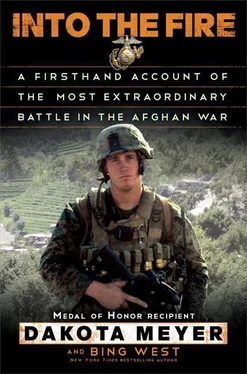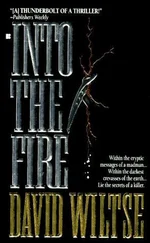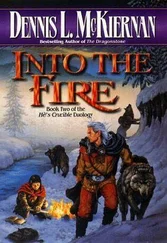Lt. Rhula was smart. To him and to the Askars, the war was a job. If they were rounded up or killed, their families would lose a steady paycheck. Most wouldn’t stay to fight on ground that favored the enemy.
The dushmen weren’t idiots either. Think of it. You’re three or four Taliban living in a compound, and you see pickups bouncing over the rocks toward your village. It’s another “key leader engagement” by the infidels and the Afghan traitor soldiers.
Unseen, you run up the hill and dig up your two AK rifles and a PKM machine gun with fifty rounds in the belt. From behind some rocks, you squint down at the helmet of an American advisor in an armored turret, slowly cranking his enormous .50-caliber gun back and forth, not knowing where you are, but knowing you are watching him.
Usually the dushmen waited until we drove away before firing in sheer bravado. Thank you and don’t come again. I’d respond by turning the offending hillside into dust clouds. Only two or three times did I hit somebody. Usually it was just a cloud of dust downrange and the wind-chimey cascade of empty brass shells falling into the Humvee from my thumping gun. Then we’d head back to Monti.
The Askars with us didn’t care one way or another about our counterinsurgency theory. They were soldiers, with no attachment to the people living around Monti. For them, it was another day, another walk through a hamlet, then back to base for dinner, chats over their cell phones, some fine hash to smoke, then a few hours’ sleep in the barracks. They joked with one another and posted security, bored bit players in a drama that changed only when a friend went home or took a bullet. I learned to trust and rely on them every day. They became like family.
Over the course of these patrols, I went through thousands of rounds, but it’s hard to hit an unseen enemy. Not that I didn’t try. Lt. Johnson gave me a long leash to determine team tactics, and sometimes I let my hunting instincts get the better of me. I kept hearing about this place called Dab Valley, where every patrol took fire. So I came up with a brilliant plan and presented it in low-key fashion to Lt. Johnson. We’d drive up toward Dab, I explained, and then stop any passing vehicles to search for weapons or ammo. I didn’t tell him that we were going to park at the exact spot where previous patrols came under fire. I was quite proud of my scheme. When we came under fire, I’d train my Askars, just as headquarters wanted, and shoot Taliban, just as I wanted.
So we drove into this narrow gulch and stopped. When we looked up, we could see a dozen caves where the enemy could be hiding. We sat for a few minutes knowing we were sitting ducks. I happily waited to unload with my .50-caliber. Lt. Johnson, though, was taking in the bigger picture, including what would happen if an RPG blew off one of our tires and we were stuck in the shooting gallery. The more he looked around, the more he growled at me. Finally, he threw up his hands and shouted that we were leaving. In a cloud of dust, we drove out of that death trap.
“Meyer,” he said, “why do I let you talk me into insane things?”
A few days later—early August—I had another chance to impress Lt. Johnson with my initiative. We were on our way to conduct a key leader engagement. When we stopped at this small hamlet, we were greeted with a mortar shell exploding next to us. I scanned the ridgeline and saw the dust raised by the recoil of the launching tube, about a thousand meters away.
We took cover. There were maybe two or three guys up there. We started calling in artillery and we could have driven away, of course, but what fun would that be?
Instead, I came up with another brilliant idea.
“Let me climb up and flank them from the left,” I said to Johnson. He stared up at the mountain, thinking about it. To show him how confident I was, I grabbed a few Askars and started climbing before he could say no.
It took twenty minutes for us to scramble up, with only a couple of hostile rounds cracking off the rocks near us. When we reached the top, we looked around for the mortar team.
Suddenly, heavy slugs cracked overhead. It was friendly fire, coming from the Afghan police station position in the town on the other side of the mountain. They had spotted our silhouettes and figured we were the mortar guys. They were dialing us into the crosshairs of a Russian anti-aircraft gun, which would soon turn the ridge, and us, to dust.
“Get it off us!” I radioed frantically.
Lt. Johnson pulled out his cell phone and called Lt. Rhula, who immediately called the Afghan police chief.
“If your guys fire one more burst,” Rhula yelled, “I’ll drop mortars on your head.”
The firing stopped. We stood up, dusted off, and trudged back down the hill.
“If you’d gotten clipped, Meyer,” Lt. Johnson said, “I’d have to spend a month with investigators.”
“I had it under control, sir.”
“Uh-huh.”
A few days later, Rhula filled two Ranger trucks with Askars and sped out the gate without telling us where he was going. He said he was responding to an ambush of several jingle trucks. Most Afghan trucks are brightly painted and decorated with jingling bells, as if every vehicle had to pass through a third-grade art class. But if all your life you’ve been saving for that vehicle, you want to show it off. Trucks were routinely stopped by Taliban or other bandits and shaken down. Sometimes the Taliban torched the trucks for no obvious reason. The truck drivers continuously played Russian roulette.
About an hour after Rhula left the gate, we got a call from a helicopter pilot.
“Hey, Fox 6, your Afghans are shooting it out with some Afghan security guards,” the pilot said. “What do you want me to do?”
“We have no SA,” Lt. Johnson replied. “Don’t do anything.”
“No SA” means no situational awareness—a military phrase meaning no fucking idea what is happening. An hour later, our Askars returned with bullet holes in their trucks. Eventually we found out they had driven off the ambushers and, as payment for their services, had siphoned five gallons of gas from a jingle truck. The pissed-off drivers had shot at Rhula’s Humvees as they drove away. No one was seriously hurt, though—only a couple scratches and bruises. All good.
“We won’t help you steal,” Lt. Johnson said.
“I don’t know what you’re talking about!” Rhula said.
Hafez shook his head, and so did the others. We had busted them and they saw the humor in it. If one of them had been killed, though, it would have been different.
The four of us adopted a stray mutt named Annie. She was always happy to see us barge in, peel off our armor, and open the ammo box we kept full of dog biscuits. For some of the U.S. Army guys, our small hooch was a hangout because the atmosphere was relaxed. Lt. Johnson treated everyone as an equal and kept things upbeat. I don’t mean to say it was summer camp, but it was good to get to know each other, despite the differences of rank and age and upbringing.
Lt. Johnson was a Virginian by birth but was now Mr. Oregon. That’s where he saw his future. He was in tremendous shape and at sunset, would muster us out for a hundred push-ups, two hundred sit-ups, and ten laps around the perimeter.
Soon-to-be Gunnery Sgt. Kenefick, a New Yorker, looked like a damn movie star—maybe Ben Affleck. He worked day and night to get the Askars shaped up organizationally. He had been a high school quarterback and had wanted to be a Marine way before 9/11.
Hospitalman 3rd Class James “Doc” Layton, the Californian, with a younger, happier face than the rest of us, and heavy-metal music in his earbuds, was watching out for our health (according to him) and bringing health services to the villages we visited. Doc had grown up in a small town near Modesto, and as a teen he would walk the several miles into town each night to work in a pizza joint. He had planned out his life on those long walks. He was going to pursue a career in radiology while operating a little recording studio on the side.
Читать дальше












